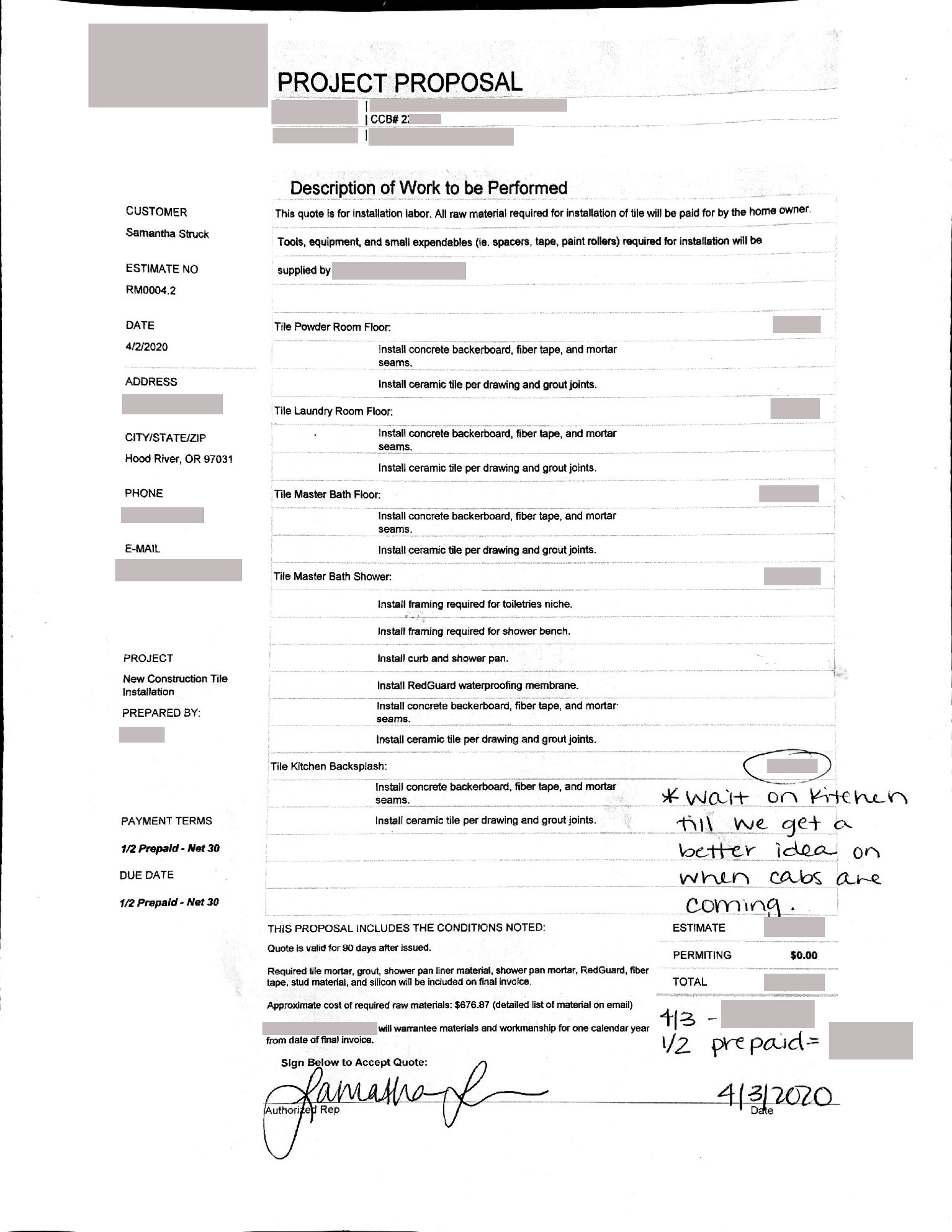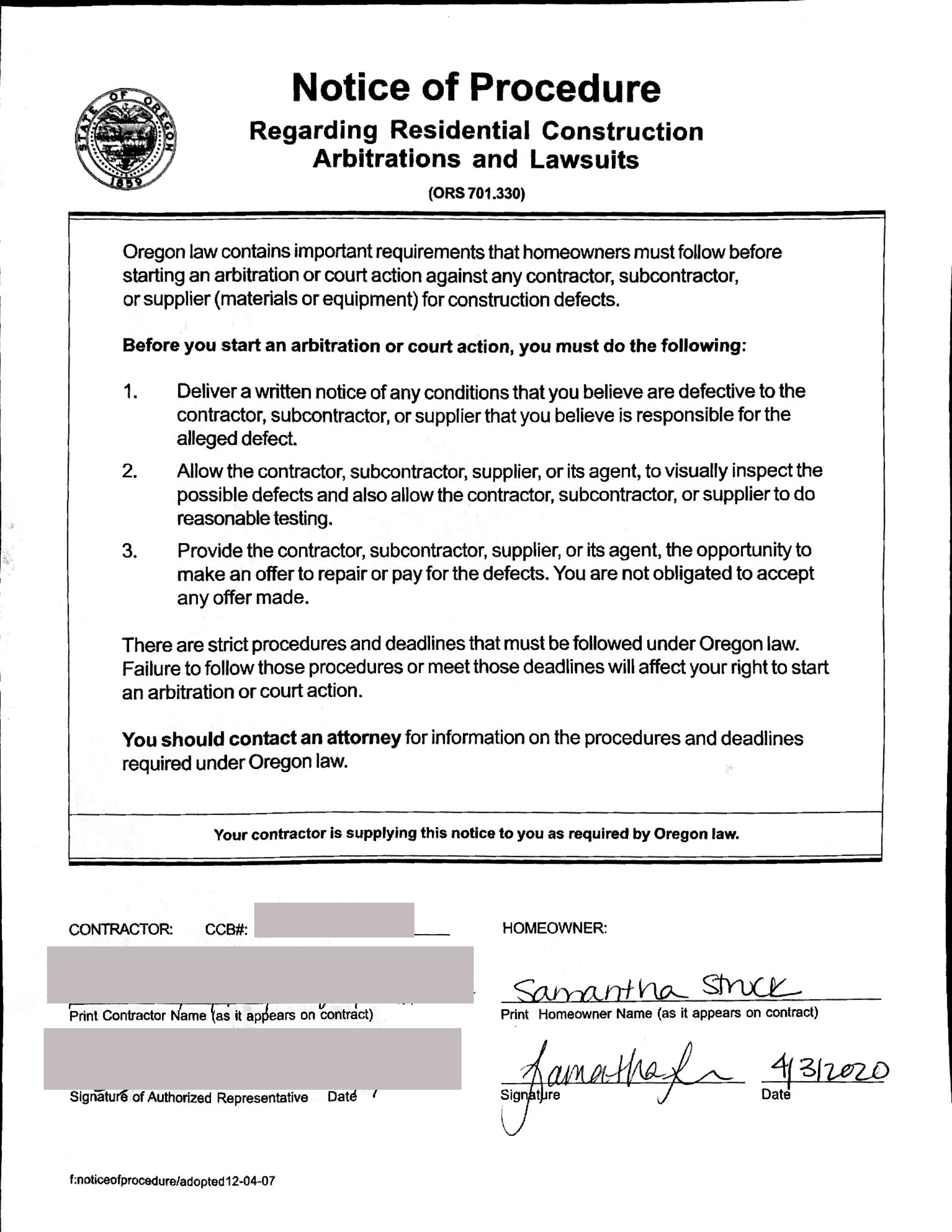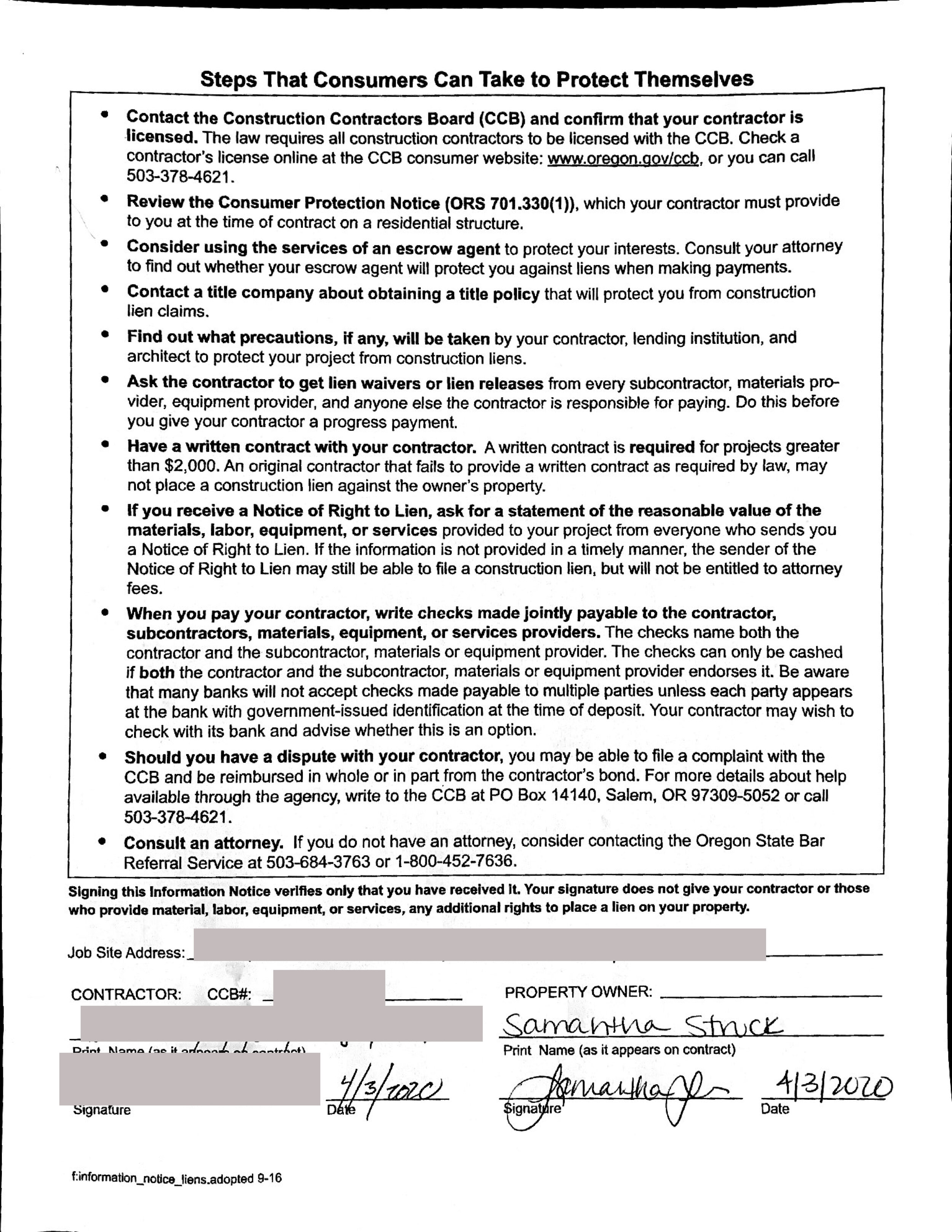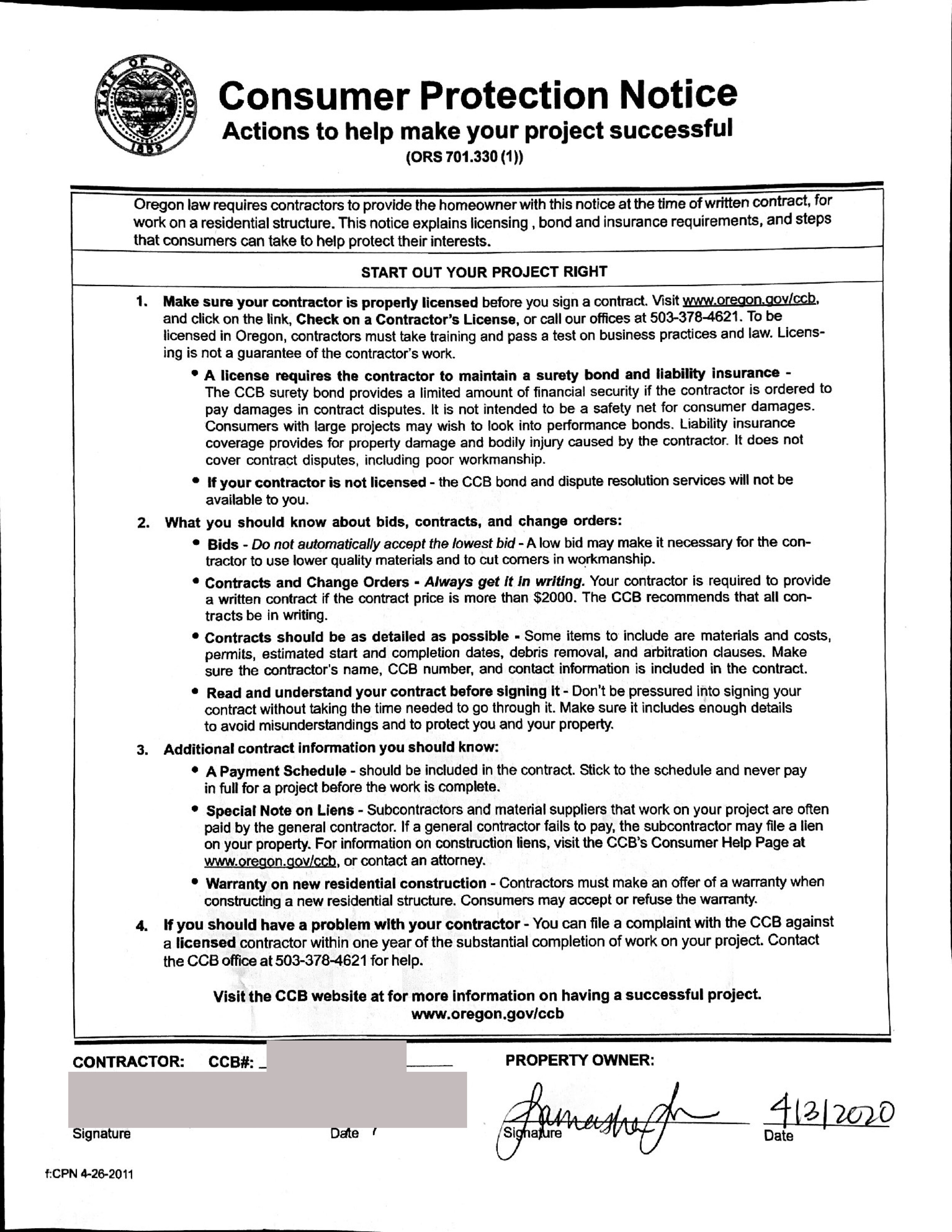General Contractors 101
General Contractors 101
Let’s talk GC’s. I have experienced the full spectrum of general contractors and wanted to help clear the fog about what they do, how they bill, and how to find the right one for you!
The knowledge presented here is based on my experiences both personally and professionally. The main goal is to share and support you on your journey to build completion! That being said, I’ve put together a list of 5 tips with contractors for you!
1) Always ask for and check the license number listed with your state’s CCB directly.
Be sure to look at who the registered license holder is. Look for complaints, active bonds, and insurances. For example, I know of situations where someone claimed to be a GC, but was infact using a license number that was actually held by a friend, family member, or someone else. For example, I found myself in this situation once, as I did not do my due diligence and research the person prior to hiring them (never do this…..) and if I had, I would have seen that they had already accrued enough of a complaint record and fines on their prior licenses that they switched to using someone else’s CCB# to help that record look clear to new/prospective clients. You always want the person performing/managing the work to be the license holder. Sharing licenses is not an above board practice. Some GCs will say it is fine. It’s not.
For Oregon’s CCB site, click here.
2) know your rights as a homeowner and watch for your required notices.
This is such a funny one to me. The State has very clear guidelines for what information MUST be delivered to you as a homeowner when hiring a contractor. This could be a tile guy, electrician, plumber, any trade, not just a GC. There is a packet of information that is REQUIRED to be delivered with your contract. This often overlooked by contractors. The State copy of that can be found here. The packet goes over what liens are, what is required in your contract with your contractor, and what your rights are should there need to be arbitration. It is important to know that the courts will typically side with the consumer from a protection standpoint, so if these documents are not being given to you and signed by your contractor, the court could penalize the contractor for that, but not you as the consumer. These forms are required to be signed by both parties, so be sure to read them and ask questions should anything seem unclear.
3) ASK FOR A DETAILED CONTRACT WITH CLEAR DEFINITIONS OF HOW THEY BILL.
There are three ways contractors typically bill for their projects. Each scenario will have different potential hiccups. Here are some tips depending on which way they operate:
TIME & MATERIALS: This is typical for trades such as electricians, tile, flooring, etc. When I encounter this type of agreement, I ask for a detailed list of materials with a N.T.E. (not to exceed) labor limit. This keeps things from being open ended if they, say, they are overly perfectionist and love to draw the clock out but if they fall below that number with tracking their hours, you would be billed the lesser.
FLAT FEE: This is a contract price that is fixed regardless of how long it takes them. Typically it is based on an estimation of time and materials and does not include a specific breakdown of hourly rates or materials. It’s just lumped together into one number. Contractors with these types of contracts will usually be motivated to finish the work as soon as possible because it maximizes their hourly rate. This can be great if you want to get things done quickly, but make sure to check work consistently to see if any corners are being cut. Conversely, this can occasionally lead to longer work times if they are not motivated to move from job to job and are just good with knowing what they will make in the end. Make sure to discuss your expectations for completion and settle on an expected date (if possible) to make sure you are covered in any scenario. Contract pricing/flat fees for larger projects, like whole house builds, are tricky since they will have “allowances” in your contract that you are beholden to in order to stay within the budget price (or you will encounter “change orders”). This is where some GCs/builders work the numbers to their advantage to get the job knowing full well that they will be having change orders to make up for budgetary numbers that would be impossible to stay within.
For example: In the allowances, let’s say there is a line item for “Light Fixtures”. I have seen numbers as low are $1,200 for an entire new build. I have also seen Cabinetry as low as $6,000 for a new house. I can tell you right off the bat those numbers would probably be impossible to stay within unless you shopped only at IKEA—and even then it’s a stretch. So if you are considering a new construction house and this is what you are presented with, I would ask for a full accounting of a previous project and where it landed relative to the proposed cost OR I would have someone who knows the industry look it over before you sign.
PERCENTAGE: This contract is typical for new construction and large remodels and is typically for General Contractors or builders who have subcontractors working with them. In this scenario, the GC hires other subcontractors to do most or all of the work (foundation, electrical, plumbing, etc.) and they “mark-up” each invoice with a percentage on top to cover their time managing—hopefully—the project. This can be tricky when they have direct employee’s they have hired AND subs they work with. You want to be sure to ask what each employees’ costs are and if the percentage is on top of that rate as well. Some contracts tax that modifier on to their direct employee (not talking a sub), where an employee is maybe paid $22/hr, billed to you at $50/hr, and then they also add the GC percentage on top of that. Not that one way is right or wrong, it is just helpful to know how they do these things before going into the contract so you do end up feeling taken advantage of down the road. Also, I have seen GC’s who work on percentages “bid” a job to help give the client and idea on the overall costs. This is only helpful if they actually have bids from the subcontractors. Otherwise they are bidding work they do not do, typically know less about, and probably shouldn’t be throwing a number at. When I have seen this happen, 9 times out of 10 they are below what the subcontractor would actually bid for the work to be done.
Also as a side note, ask what the warranty is for their work and be sure to check and make sure it is included in the contract. The best contract I have received to date for our house was from a local contractor we enlisted for tile and this is what the package included. You’ll note my handwritten notes. These notes are just as important as anything you type. If you have agreed to wait on anything or want to change the agreement at all, note it. Note what your deposit was and when it was paid. I was so impressed by this package and felt secure moving forward since it was evident that he cared just as much about my rights as his.




4) Ask to see the work of other projects. Visit JOB SITES. Check references.
Technology and social media make it easy for people to present themselves as whoever they want. It’s okay to ask for references and I would definitely ask to see at least two projects of similar size/scope in person before agreeing to sign. These are some of the more informative times when you are feeling each other out. Clients will typically be there and will either give their rave reviews, or in some cases, share the pain points. In any case, really take your time to see the work that has been performed before signing on the dotted line. There is a lot that can be concealed with the right angle on a photo.
5) start looking for a general contractor as soon as you can.
In our area, generals are booked out often no less than 12 months out. Some with larger resumes can be at least 18 months. So you will want to vet and line up a general as soon as you can. Some will require non-refundable deposits. This is considered standard practice, but the amount varies from company to company. As a general rule of thumb, be sure to ask what the clauses are for the deposit. I have seen contracts that protect the general should you cancel the project but do not cover any penalties or damages to you should they be the ones to delay a start date.
Remember, a contract should be equally balanced to protect you as well as the contractor. If something feels off, it probably is. Trust your gut. There were some red flags with the people we first hired on our house that we over looked because they were personable, charmers, and seemed trust worthy. A quick search with the CCB and of the regional County Courts would have led to very different choice. Let my lesson be one that you learn from and hopefully avoid! For more helpful information, check out the State of Oregon’s CCB Consumer Guide.
Are there any questions you still have lingering about how to hire a general? Drop a comment below or send us a message! We’re here to help!




